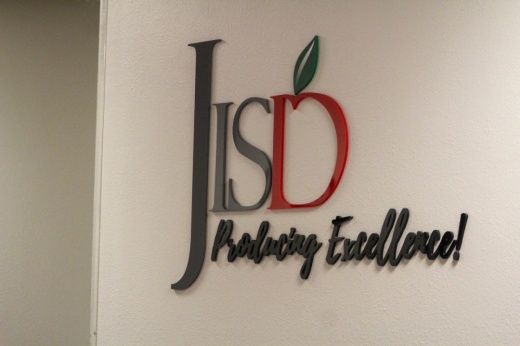What you need to know
The board is proposing a fiscal year 2025-26 property tax rate of $1.0796 per $100 valuation, a rate increase of $0.045 from FY 2024-25 and an increase of $0.08 from the FY 2025-26 voter-approval tax rate.
If approved, the VATRE would bring in approximately $21 million of revenue, Chief Financial Officer Tony Kingman said—decreasing the district's budget shortfall from $37.95 million to approximately $16.95 million.
If the VATRE passes with that rate, the district budget is three to four years away from being balanced without other cuts, Kingman said.
How it happened
On Aug. 6, the board consensus was to call for a VATRE at a tax rate of $1.1196, the maximum tax rate the district could set for the election. The rate of $1.1196 would bring in $24.53 million in new revenue, Kingman said. The Aug. 18 vote on that rate failed with three votes for, one vote against and three abstentions. Trustees Laura Stanford, José Macias Jr. and Suzanne Kenoyer voted in favor of the proposed rate; Lesley Lee was the lone vote against the rate; and board President Monica Ryan, board Vice President Amanda Poteet and trustee Stephanie Jones abstained.
Macias made a new motion for a rate of $1.0996, taking 2 cents off of the district's interest and sinking rate, which is used for debt service. The rate would have given the district the same rate and the same revenue for maintenance and operations, or M&O. The M&O rate is the rate which triggers a VATRE, according to the Texas American Federation of Teachers.
The motion for $1.0996 swayed Lee to a yes vote, while all other trustees stayed in their positions. The motion failed 4-3, as the calling for a VATRE necessitated a 5-2 board vote. A follow-up motion by Macias for a rate of $1.0896, taking 1 cent off the M&O rate, with the same 4-3 vote killed the motion.
Ryan followed with a motion to set the rate at $1.0496, which gained support by Poteet and Jones; while Lee, Kenoyer, Stanford and Macias voted against.
One final option was brought forth by Jones to set the rate at $1.0696—which Jones, Ryan and Poteet voted for, with the other four trustees voting against. Kingman said that option would yield roughly $20 million for the district.
The trustees reached a unanimous consensus on Macias' motion to make the rate $1.0796.
Offering input
Ryan said she wanted a lower rate than $1.1196 because it would help drive support for the VATRE, and the maximum VATRE would "risk getting nothing from the voters at all."
"I'm not a high stakes gambler who puts their money on the number five on the roulette wheel and hopes for a big payout. I prefer less risk. I put my money on red and give myself a better chance," she said.
Macias said the community members he has spoken to understood the need for a full VATRE. He pointed to Senate Bill 4 and SB 23 going into effect, saying that the homestead exemption increases will provide property tax relief even with a maximum VATRE. Senate Bill 4 increases the school property tax exemption on homesteads from $100,000 to $140,000; while SB 23 increases exemptions for elderly or disabled homeowners, as previously reported by Community Impact.
"The $24 million has to be our objective because this year, of all years, [a majority of] taxpayers are going to still see a reduction in their taxes. ... [Ryan's] compromise does not get us to where we need to be," Macias said.
Both Ryan and Macias eventually agreed to the rate of $1.0796, as did trustee Kenoyer, who initially supported the full VATRE.
"We cannot cut our way to a balanced budget. We cannot. If we do, we no longer have Judson ISD. We have some entity that gives some kind of education to kids, but it is not Judson ISD," Kenoyer said.
Next steps
According to a district news release, Judson ISD will host community forums and publish its district efficiency audit online ahead of the election.
Early voting in Bexar County for the VATRE goes from Oct. 20 through Oct. 31. The final day to register to vote for the Nov. 4 election is Oct. 6.





